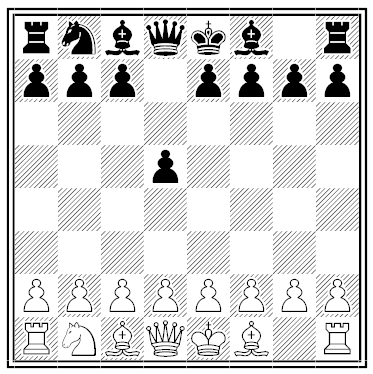
A tricky problem by Ernest Clement Mortimer. This position was reached after Black’s fourth move in a legal chess game. Can you reconstruct the game?

A tricky problem by Ernest Clement Mortimer. This position was reached after Black’s fourth move in a legal chess game. Can you reconstruct the game?
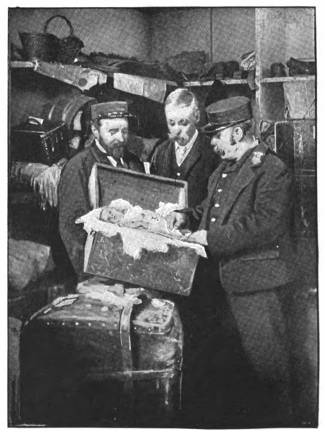
It is a sad fact that dead babies figure largely in the contents of the railway Lost Property Offices. These are at once handed over to the police, and a formal inquest is held. Some little time ago, Mr. Groom tells me, a live child was found in a small box on the departure platform, close to the eight o’clock Scotch train. The little one was cosily packed in wadding, and was provided with a feeding-bottle. A few holes had been drilled in the box–which, by the way, was covered with wallpaper, and was addressed to a home in Kilburn. The authorities of this home, however, refused to take in the child, as no money had been sent with it. So the poor, lost property infant was handed over to the police, who, in turn, passed it on to the workhouse, where it was christened ‘Willie Euston,’ and lived for four years. I succeeded in obtaining a photograph of the finding of this child, and the incident is shown in the accompanying illustration. The official on the right gave his own Christian name to the poor little waif.
— William G. FitzGerald, “The Lost Property Office,” Strand, December 1895
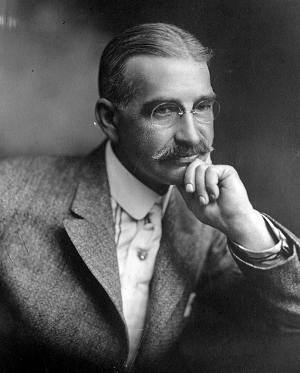
L. Frank Baum was 41 years old when he published his first book. In giving a copy to his sister, he included a personal inscription:
“When I was young I longed to write a great novel that should win me fame. Now that I am getting old my first book is written to amuse children. For aside from my evident inability to do anything ‘great,’ I have learned to regard fame as a will-o-the-wisp which, when caught, is not worth the possession; but to please a child is a sweet and lovely thing that warms one’s heart and brings its own reward.”
The Wonderful Wizard of Oz appeared three years later.
ecdemolagnia
n. lustfulness when one is away from home
A traveler wants to stay at an inn for seven days. He has no money, but he has a gold chain with seven links. The innkeeper agrees to accept this in payment for the week’s stay, but the traveler is reluctant to part with all seven links at once. He prepares to cut the chain into seven pieces.
The innkeeper stops him. If the traveler is willing occasionally to accept change in the form of links previously paid, then they can work out a plan that minimizes damage to the chain and yet permits the traveler to pay only what he owes on each successive day. How many links must they cut?
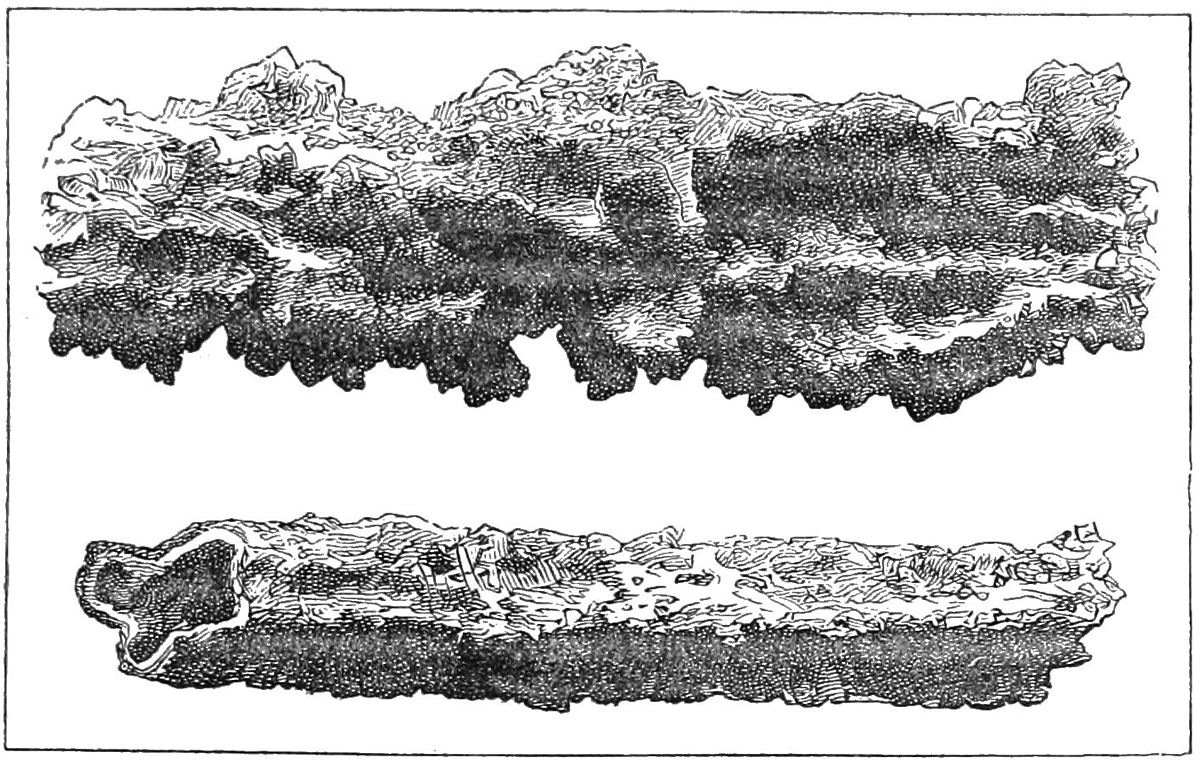
Lightning can fuse sand into curious rootlike tubes up to 5 meters long, called fulgurites. Because their shape records the path of the strike as it passes into the ground, they’re sometimes known as petrified lightning.
Lightning had a ruinous history before the introduction of Ben Franklin’s lightning rod. The campanile of St. Mark in Venice was destroyed three times over. In 1769, a bolt struck the tower of St. Nazaire in Brescia, whose magazine contained 100 tons of gunpowder. One-sixth of the town was destroyed, and 3,000 people died.
Compounding the harm was the disastrous belief that ringing bells during thunderstorms would allay lightning. In one 33-year period, lightning struck 386 church towers and killed 103 bell ringers.
Modern strikes are less dire. In 1919, Cleveland Indians pitcher Ray Caldwell was struck by lightning during a game against the Philadelphia Athletics. “It felt like a sandbag hit me,” he said. He refused to leave the game and pitched to Joe Dugan for the final out. The Indians won, 2-1.

Properly speaking, can the top half of an apple exist without the whole?
What is it the top half of?
Any set of 10 positive integers smaller than 100 will always contains two subsets with the same sum.
In any such group, the number of possible subsets (excluding the empty set) is 210 – 1, or 1023. And the largest possible sum of any subset is 90 + 91 + … + 99 = 945. Hence, no matter which numbers are chosen, there will always be more subsets than possible sums, and some subsets (dozens, actually) must yield the same sum.
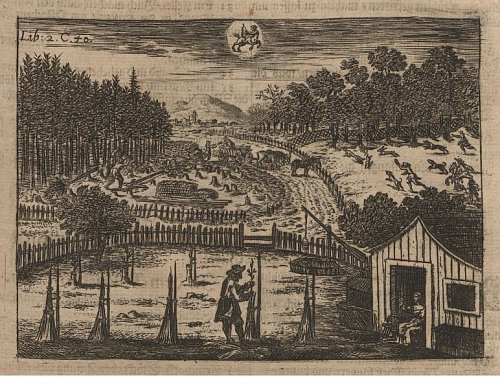
Chilly Dovebber with his boadigg blast
Dow cubs add strips the beddow add the lawd,
Eved October’s suddy days are past–
Add Subber’s gawd!
I kdow dot what it is to which I cligg
That stirs to sogg add sorrow, yet I trust
That still I sigg, but as the liddets sigg–
Because I bust.
Add dow, farewell to roses add to birds,
To larded fields and tigkligg streablets eke;
Farewell to all articulated words
I faid would speak.
Farewell, by cherished strolliggs od the sward,
Greed glades add forest shades, farewell to you;
With sorrowing heart I, wretched add forlord,
Bid you–achew!!!
— Unknown, collected in Frederic Lawrence Knowles, A Treasury of Humorous Poetry, 1902
When Scottish physician John Armstrong planned to write a book on “the art of preserving health” in 1744, it seemed a promising undertaking. Unfortunately, he chose to do it in blank verse:
The languid stomach curses even the pure
Delicious fat, and all the race of oil;
For more the oily aliments relax
Its feeble tone; and with the eager lymph
(Fond to incorporate with all it meets)
Coyly they mix; and shun with slippery wiles
The wooed embrace. Th’ irresoluble oil,
So gentle late and blandishing, in floods
Of rancid bile o’erflows: What tumults hence,
What horrors rise, were nauseous to relate.
Choose leaner viands, ye of jovial make!
This ran to four books and 128 pages, too florid to be useful and too queasy to inspire. Armstrong made a few more stabs at medical poetry, but he didn’t quit his day job: In 1760 he became a physician to the British army in Germany, and then retired.